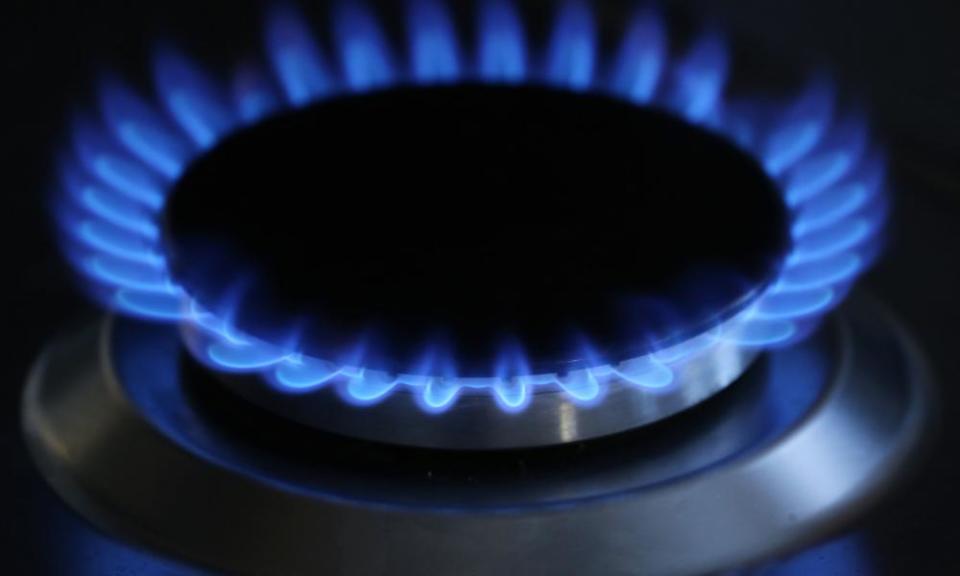UK ministers row back from extending windfall tax on energy firms

Ministers are rowing back from threatening energy companies with a bigger windfall tax, after Liz Truss and her ally Kwasi Kwarteng made plain they would not support this option.
Nadhim Zahawi, the chancellor, and Kwarteng, the business secretary, will meet energy companies on Thursday morning, but multiple government sources said the discussion would be with electricity generators to discuss investment, wholesale prices and security of supply, rather than a windfall tax.
A business department source made clear Kwarteng was “against windfall taxes” after he previously opposed the imposition of one when Rishi Sunak as chancellor brought it in earlier this year.
The source also cast doubt on whether Zahawi “has the authority” to suggest a windfall tax could be imposed given no policy decisions are being taken before a new prime minister is in place.
The Treasury is believed to want to ensure extending the windfall tax is one of the options on the table, but sources appeared to row back on the idea that it was a leading policy.
Companies invited to Thursday’s meeting are expected to include the owner of British Gas, Centrica, as well as RWE, E.ON, SSE and National Grid, among others, against a backdrop of soaring household bills and concern that supply of electricity could be tight this winter and feed into even higher prices.
It comes as Labour called for the existing windfall tax to be tightened to remove the option for energy firms to claim tax relief on more than 90% of the levy if the money is reinvested.
Rachel Reeves, the shadow chancellor, said ministers “should be ashamed this loophole existed in the first place”.
Separately, the consumer campaigner Martin Lewis reiterated his call for immediate action, saying the country faced “a financial emergency that risks lives” and that Truss and Sunak needed to announce concrete plans now.
Treasury sources had briefed on Tuesday night that a windfall tax on oil and gas producers could go further and faster, with the issue under discussion at the meeting on Thursday. One told the Sun: “If you look back at what these firms were projected to make and what they actually brought in, it was beyond their wildest expectations. We are looking at options to go further and faster on those profits.”
Related: The UK’s energy bill crisis – podcast
It is only oil and gas producers that are subject to a 25% energy profits levy since May but they are not being invited to the Zahawi and Kwarteng meeting. Both the chancellor and business secretary are supporters of Truss and vying to be the next occupant of No 11 if she is chosen by Tory party members as the next prime minister.
A Truss campaign spokesperson said: “Windfall taxes send the wrong message to businesses. They might secure more money in the short term, but in the long term all they do is create greater uncertainty and make businesses fear that they’ll be penalised for generating profits.
“What we need to do is keep taxes low, attract investment and do everything we can to secure our long-term energy supply and encourage energy companies to invest in new technologies to deliver increased supplies and keep bills as low as possible.”
The Truss campaign also appeared to blame Treasury officials and her rival, Sunak, for the idea of extending the windfall tax, telling the Spectator: “Rishi’s answer to every problem is more tax and it’s no surprise that in its dying days Rishi Sunak’s Treasury is attempting to use its final breath to force through new taxes that would make bills higher, make it harder to attract new oil and gas investors and prevent new sources of energy emerging. This is Treasury officials freelancing. Distracted by planning a leadership campaign, Rishi Sunak has failed to grip the energy crisis.”
It comes as Truss appeared to shift her position on help with household energy bills, as she denied she was ruling out providing extra assistance beyond tax cuts. She also said that “if elected I will do all that I can to help struggling households”. For days she has rebuffed suggestions that she would offer help with energy bills as Sunak has promised, focusing instead on her plan for tax cuts.
Truss’s comments, made to reporters in Manchester, brought a scathing response from Sunak’s campaign, with a source saying her approach would be “laughable were it not so serious”, another sign of the increasing bitterness between the two camps.

 Yahoo Finance
Yahoo Finance 